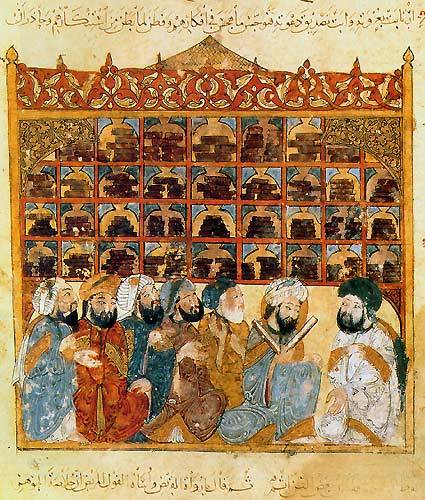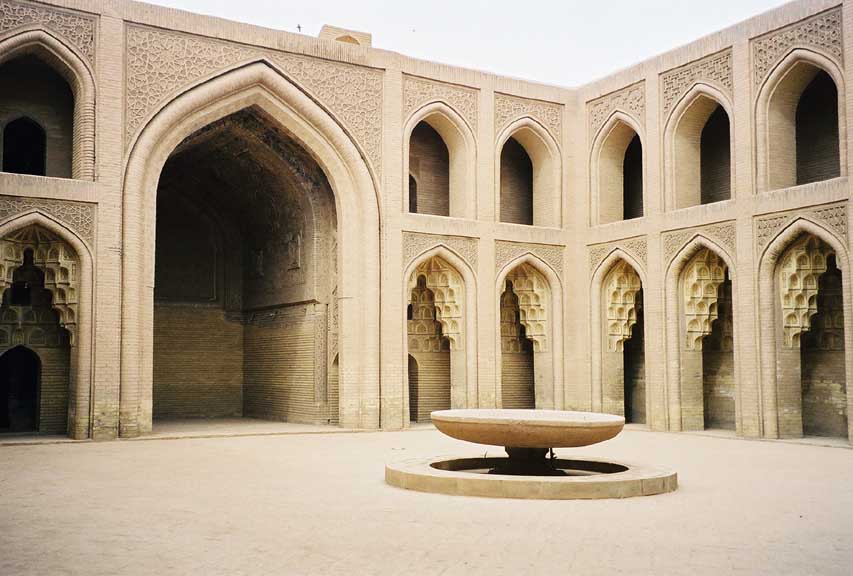The House of Wisdom wasn't just a place for translations but also a place where many well known scholars from all over the world came to share information and ideas. These discussions and further research lead to many important original contributions to the mathematics field which were persevered and researched all possible because of the House of Wisdom. Without these scholars coming together when and how they did, we do not know when the work these scholars did would have come about. Their work has shaped the way we see and do mathematics today.
For example, Persian mathematician Muhammad Al-Khwarizmi most important contribution was his strong advocacy of the Hindu numerical system (0-9) which he realized would revolutionize Islamic mathematics and later western mathematics. Muhammad Al-Khwarizmi also made great contributions to algebra which created "a powerful abstract mathematical language still used across the world today." Without his work we wouldn't be using the number system we know today or solving algebraic expressions how we are today.
Al-Karaji, who was a 10th century Persian mathematician, "was the first to use the method of proof by mathematical induction to prove his results, by proving that the first statement in an infinite sequence of statements is true, and then proving that, if any one statement in the sequence is true, then so it the next one." He introduced and used the method of proof by mathematical induction which is still being used everyday by mathematicians and educators to prove mathematical concepts.
Nasir Al-Din Al-Tusi was a 13th Century Persian astonomer, scientist, and mathematician who was the first to treat trigonometry as a separate mathematical discipline, different from others. Without his contribution we might not teach trigonometry separate and people would probably hate mathematics even more if trigonometry was lumped in with algebra.

References:
http://www.storyofmathematics.com/islamic.html
http://en.wikipedia.org/wiki/House_of_Wisdom

Fine essay. 5C's +
ReplyDeleteWe probably should have talked about that induction proof!
It is amazing that so much of the math we are taught today originated from the House of Wisdom. Your post is very enlightening and has intrigued me to look into other influential minds that came about through the House of Wisdom, and not just mathematicians.
ReplyDelete